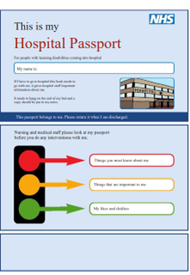What is a learning disability?
The term “learning disability (LD)” is used to describe a person who has developmental delay or intellectual disabilities, which are usually evident from birth or early childhood.
There are three core criteria, which must be met for the term learning disability to apply:
- Significant impairment of intellectual function
- Significant impairment of adaptive and or social function, meaning an inability to cope with the daily demands of his/her environment and the expectations of age and culture)
- Age of onset before adulthood
Learning disability does not include:
- The development of intellectual, social or adaptive impairments after the age of 18
- Brain injury acquired after the age of 18
- Complex medical conditions that affect intellectual and social / adaptive functioning: e.g. dementias, Huntington’s chorea
- Specific learning difficulties: e.g. dyslexia, literacy or numeracy problems, or delayed speech and language development
The term “learning difficulties”, which is often used in educational services to describe people with specific learning problems, does not indicate that a person has a learning disability as defined above.
People with learning disabilities may present as having difficulty in:
- Communicating and expressing needs and choices
- Understanding their diagnosis, treatment options or services available to them
- Understanding the consequences their decisions can have on their health status
- Adapting to a hospital environment and the expectations of hospital staff
Learning disability is often confused with learning difficulties such as dyslexia, dyscalculia and dysgraphia.
Some people also confuse neurodevelopment and neurological conditions like ADHD with a learning difficulty or a learning disability, but they are not the same.
Mencap describes dyslexia as a “learning difficulty” because, unlike learning disability, it does not affect intellect.









